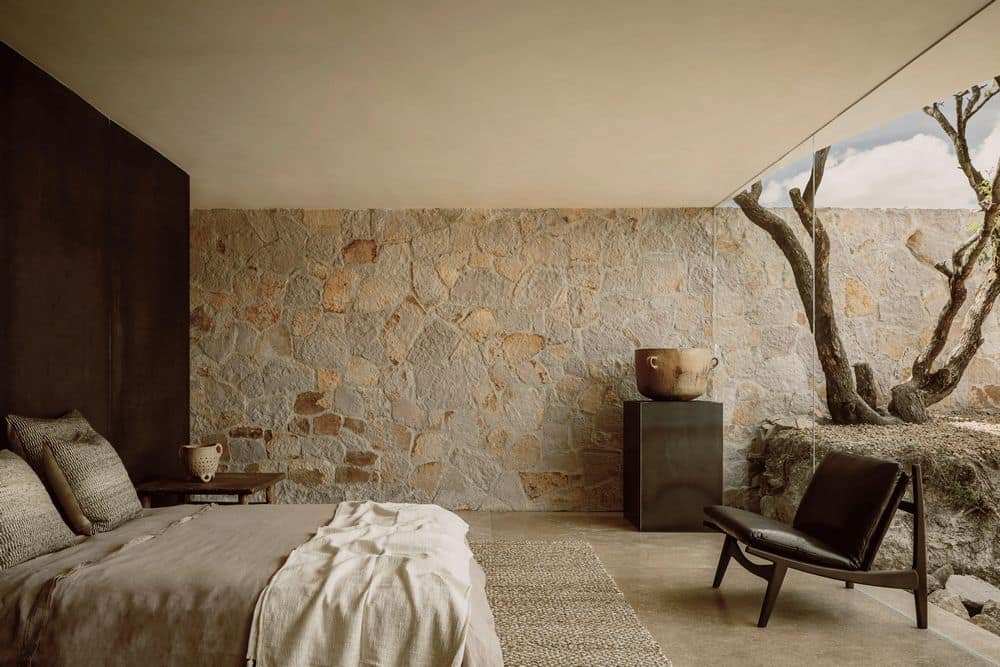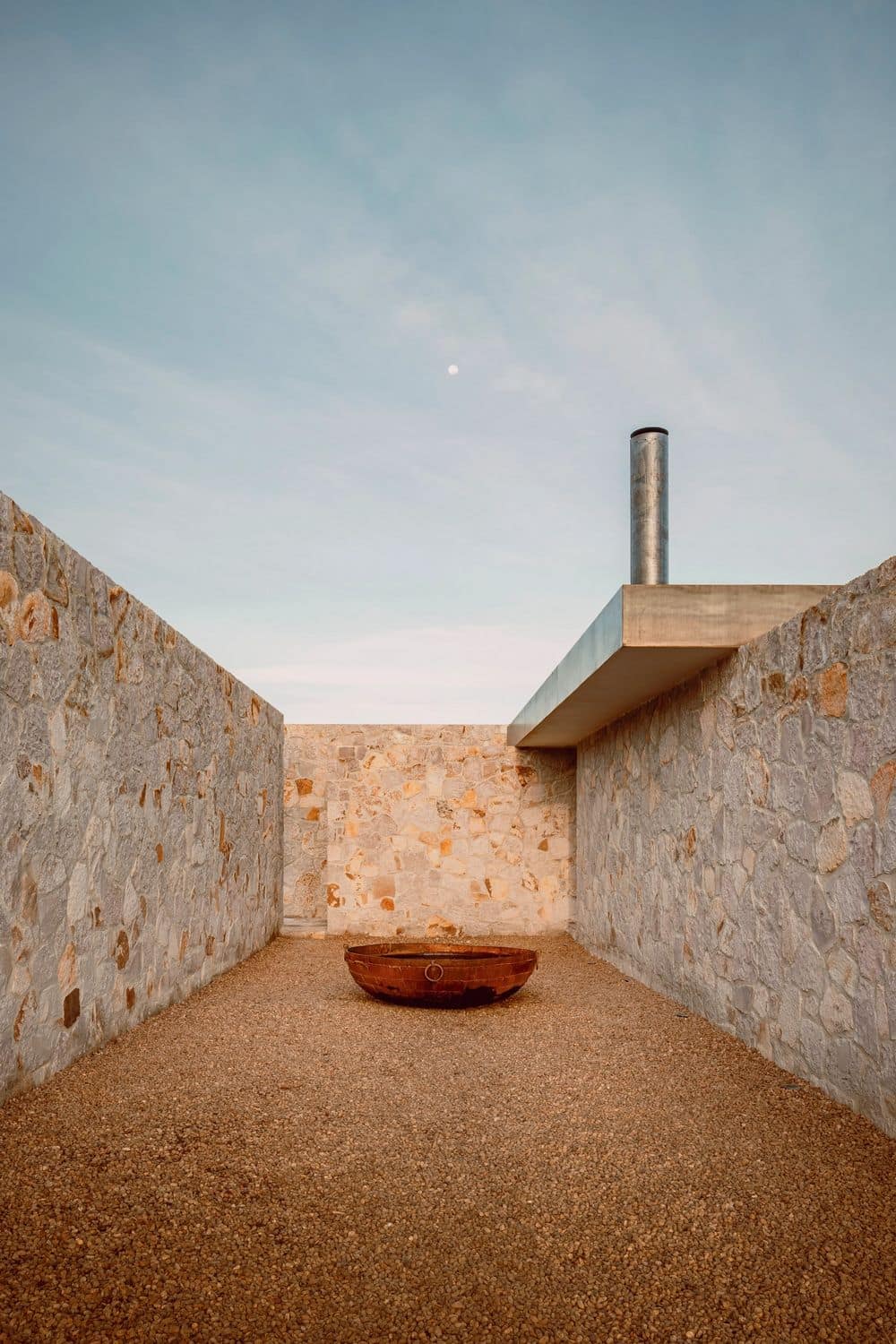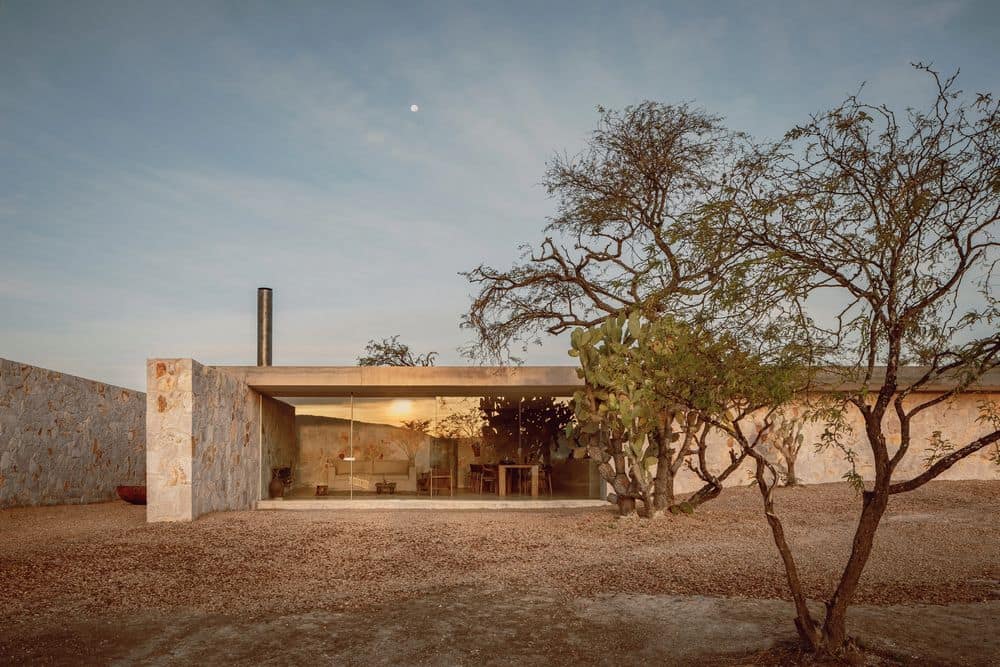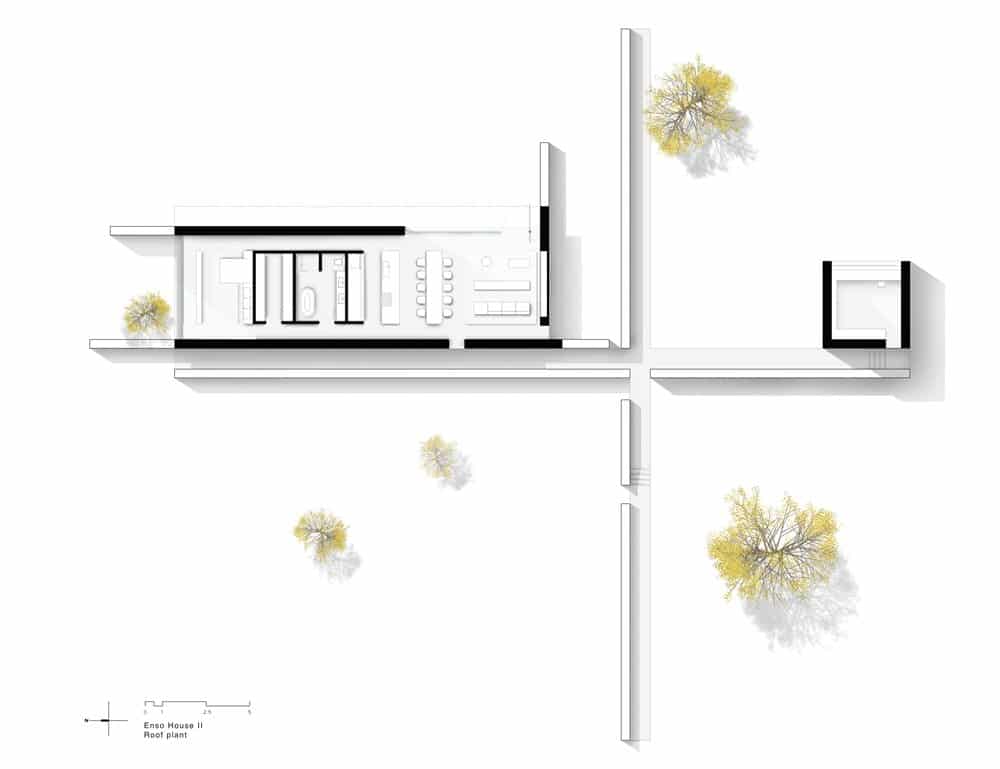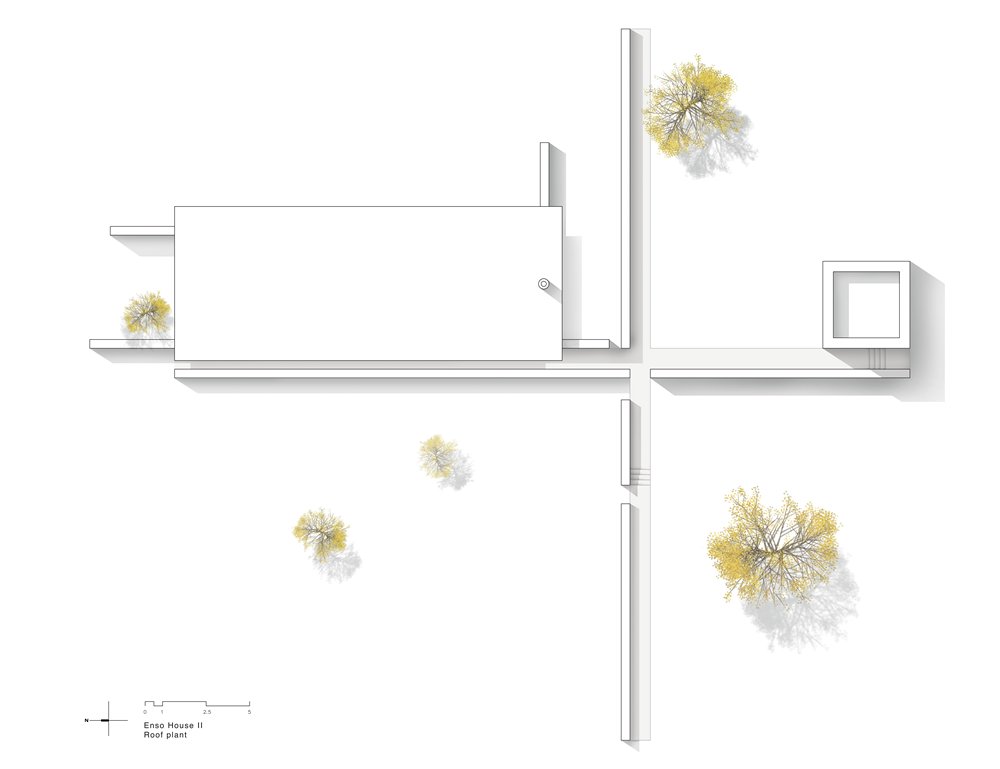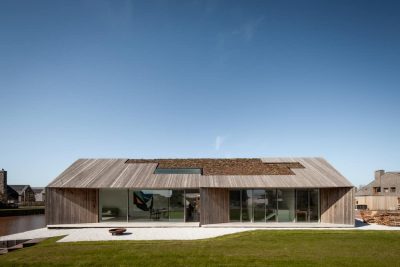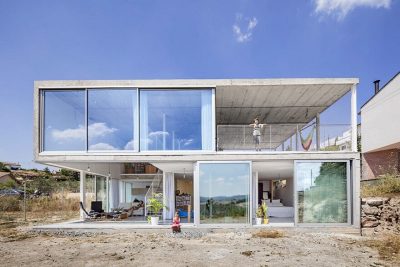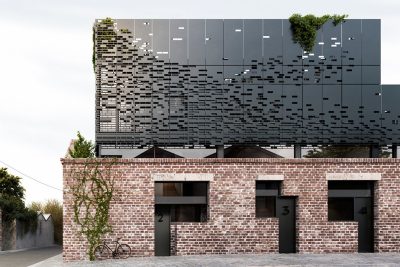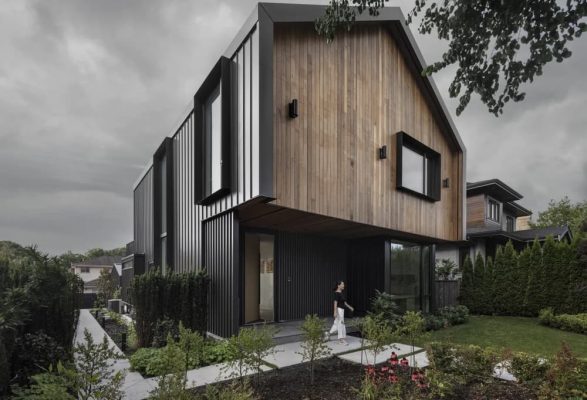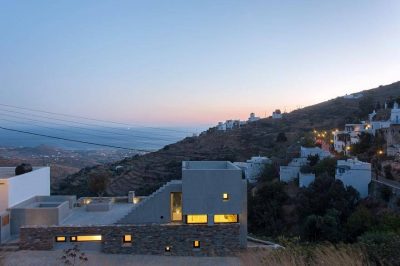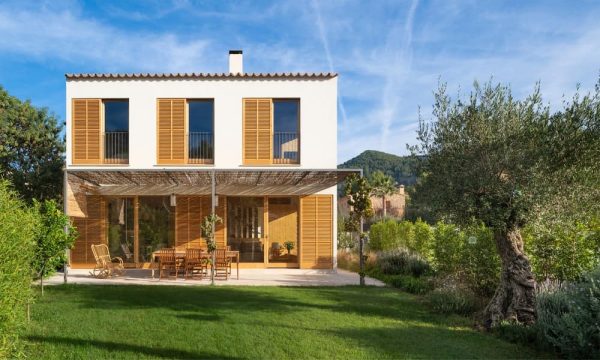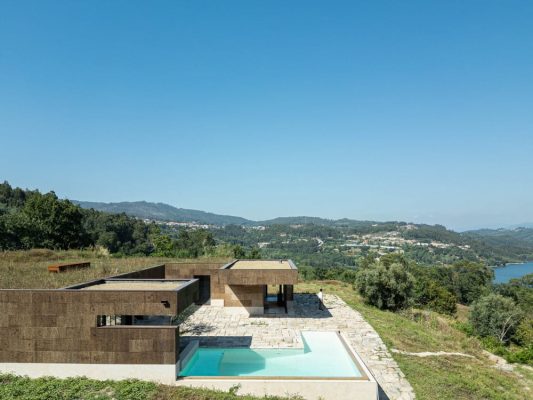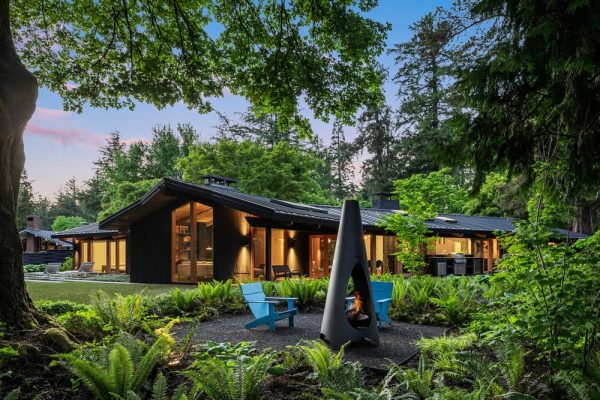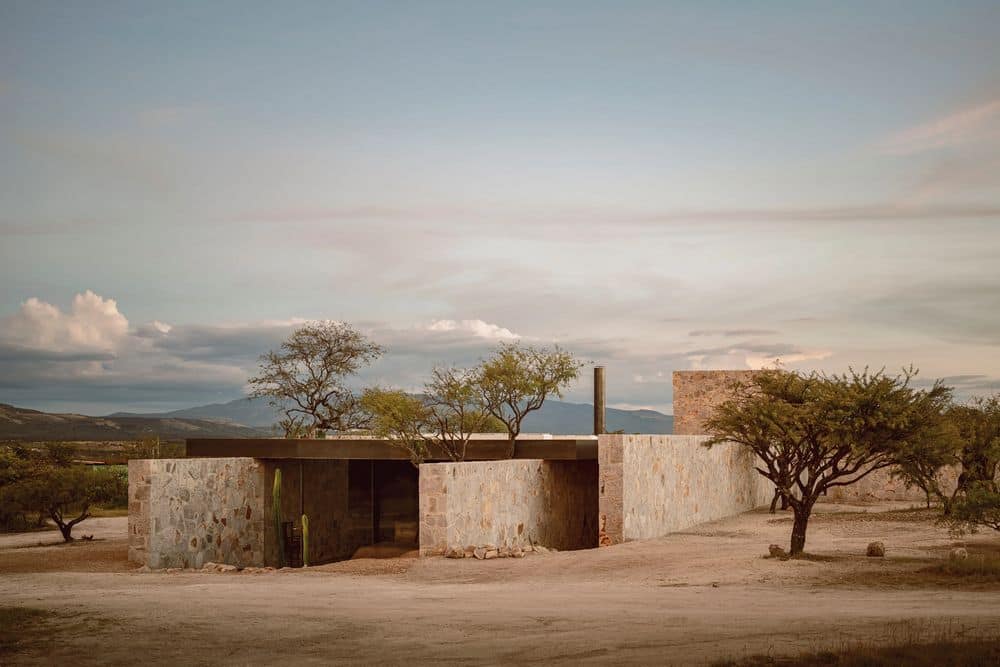
Project: Enso House
Architecture Firm: HW Studio Arquitectos
Leads Architects: Rogelio Vallejo Bores
Architects: Oscar Didier Ascencio Castro, Nik Zaret Cervantes Ordaz
Location: San Miguel de Allende, Guanajuato, México
Completion Year: 2022
Size: 195.80 m2
Budget: 300,000.00 USD
Photo credits: Cesar Bejar
When work began on this small house and after a thorough historical research, it was concluded that there are few places in Mexico with a constructive identity as strong as Guanajuato. This is clearly reflected in its architecture, kitchen utensils, aqueducts, legends, even in its heroes such as the Pípila, who carries a huge rock on his back so that the bullets of the conservatives would not reach his regiment.
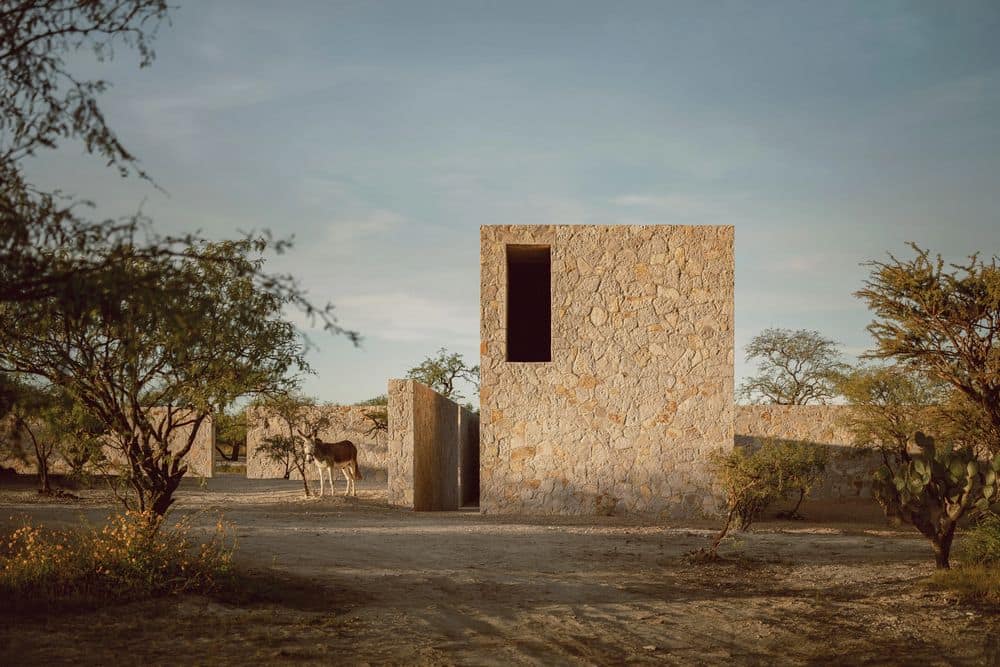
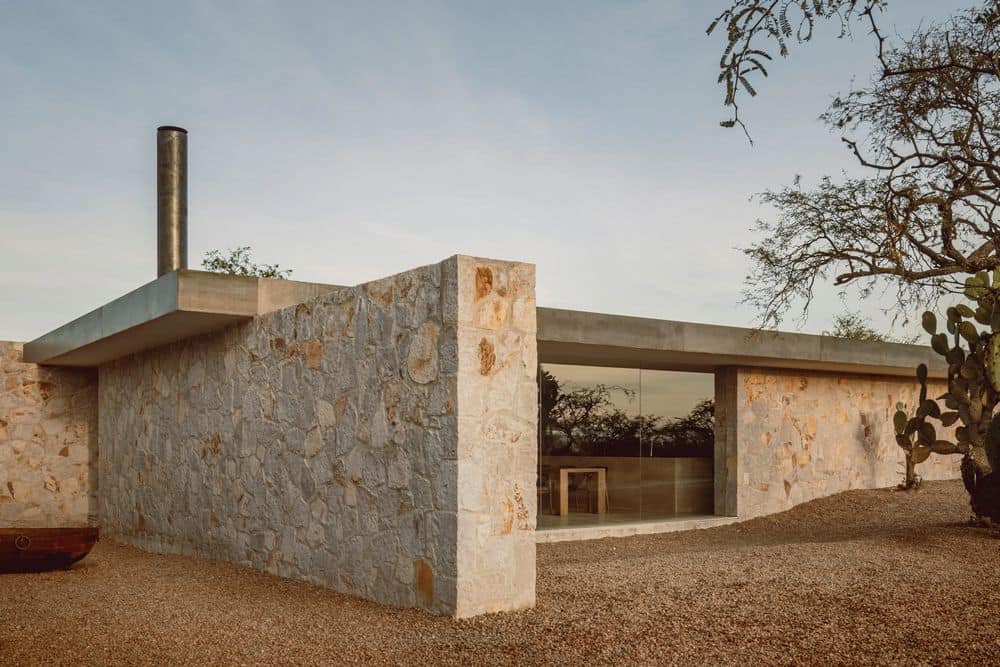
In this area of the country, stone is an element deeply rooted in any form of cultural expression. For this reason, the material for this architectural piece was very easily and naturally chosen. In addition, there was a materials bank and capable labor nearby; a dialogue of respect between the artifice and its environment was encouraged. The entire complex is organized on the basis of a cruciform plan; thus, the space is divided into four quadrants by a cross of stone alleys defining the paths, framing all moments, and separating one quadrant from the other.
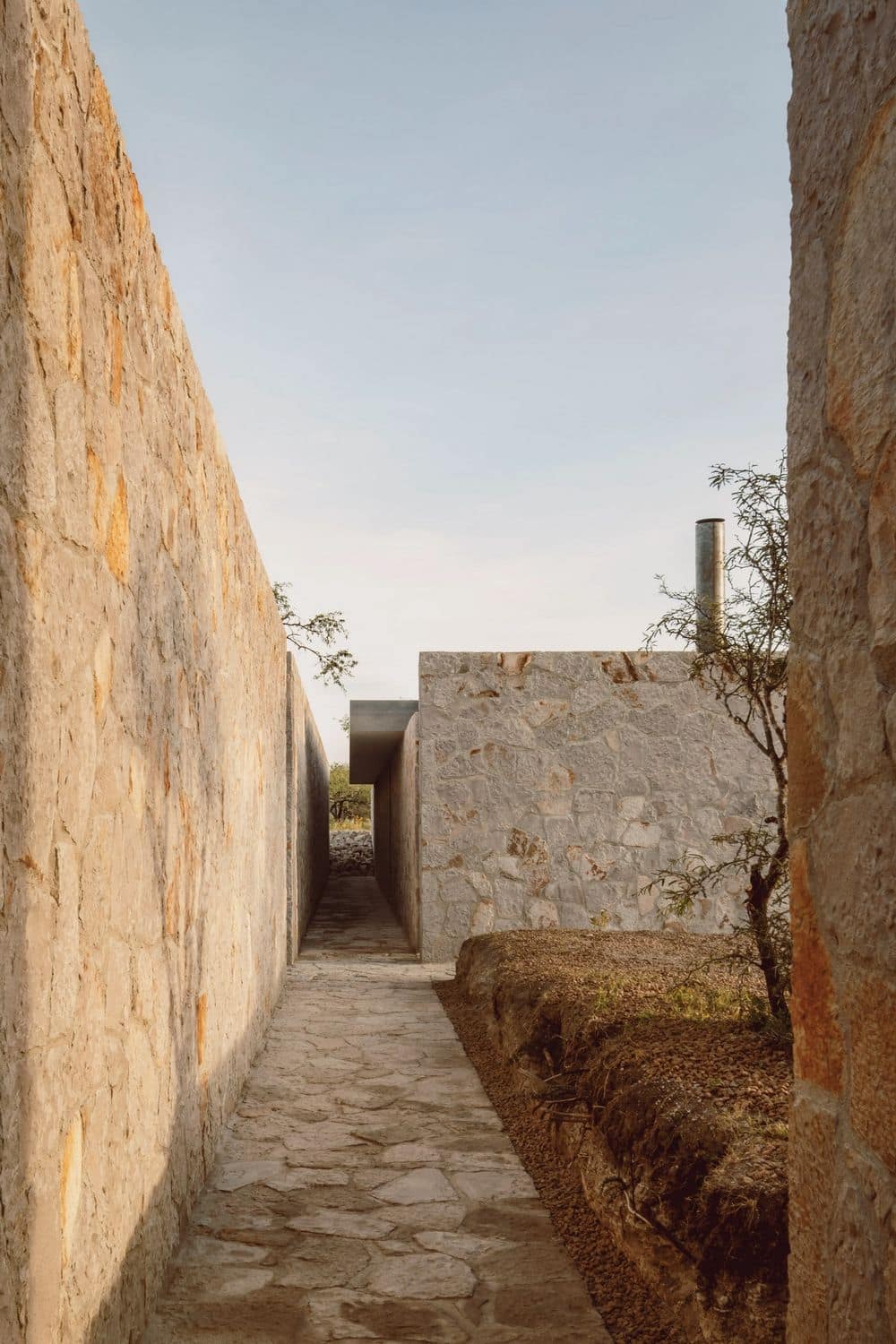
Once divided, a “vocation” was assigned to each of these quadrants: the lower right quadrant, which is the first one, receives the inhabitants upon their arrival; it has the vocation of housing an endemic garden that reinforces, protects, and welcomes living beings and humans. The second quadrant hosts the cars; special care was taken to the trees during construction, as they would provide shade to protect the cars from the sun.
To top it off, a long, barely arched stone wall protects the entrance, avoids looking inside the house, and emphasizes the horizontal presence of the mountain in the background. In the third quadrant is the one-bedroom house; the public spaces are separated from the private ones by a single volume containing bathrooms, dressing room, and service area, which breaks with the open floor plan.
In the fourth quadrant is the office; this is the only visibly prominent vertical element that contrasts with the horizontality of the landscape and the rest of the elements, seeking with this gesture to flirt with the iconic volumes of the Santa Brígida mine in Mineral de Pozos.
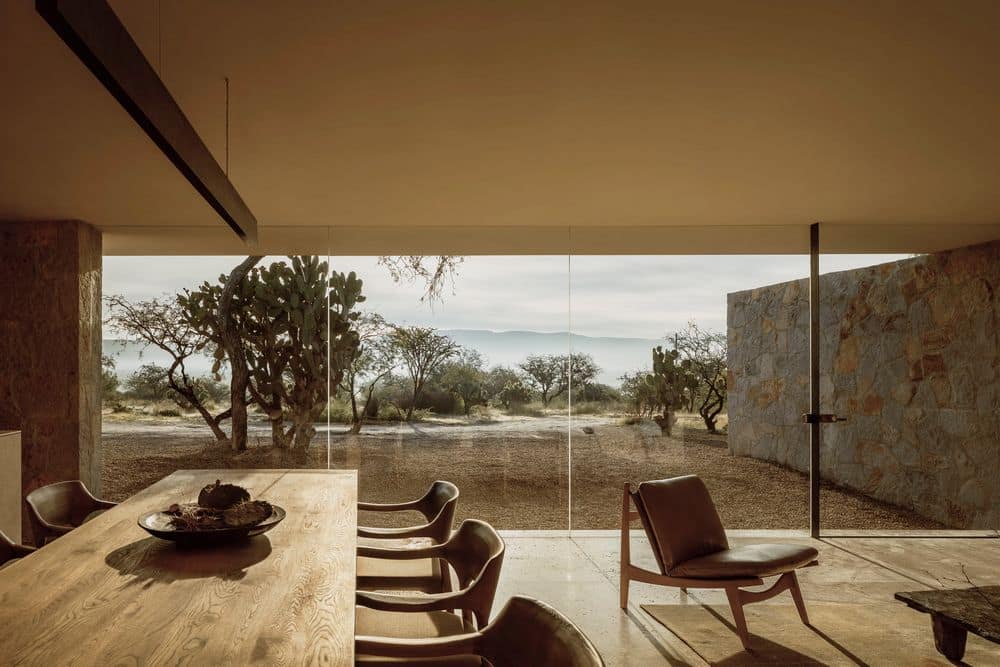
The dispersion of these spaces forces a permanent pilgrimage between spaces; it makes you come into contact with the earth, the air, and the mountain as if it were an ancient monastery, framing the landscape but at the same time forming a natural part of it.
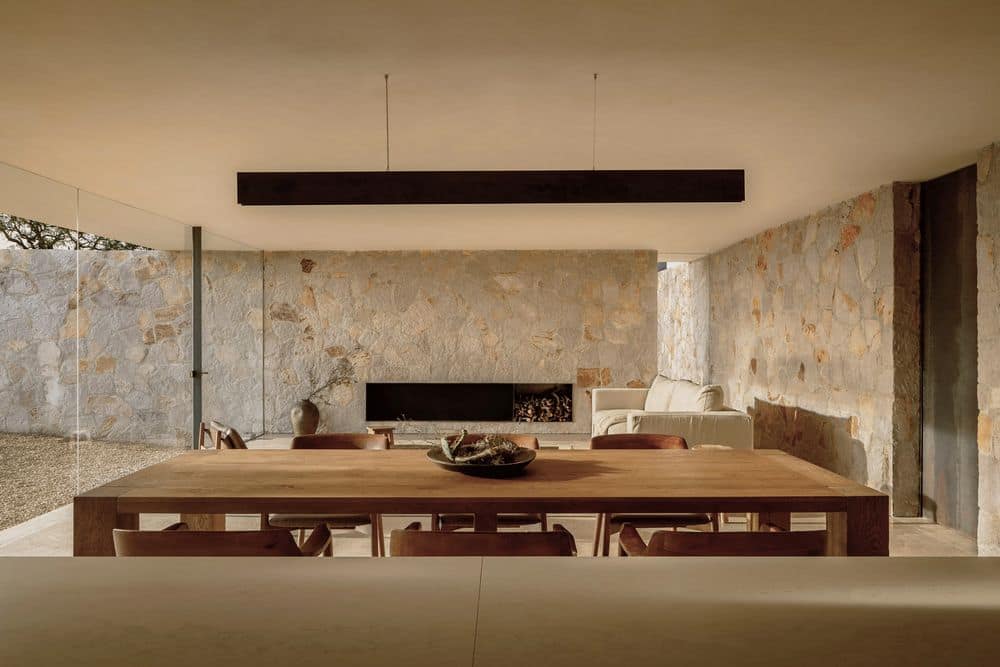

We also fancied the idea of seeing silhouettes from the outside as if performing in a play. The building’s largest and most outspoken windows had to face south. The purpose of this, besides having a convenient orientation, was to be able to see the long mountain of Santa Maria running from east to west, which is an important focal point in the city.
These windows open completely and allow the fresh air coming down from that very mountain, connecting the guest to it in many different ways.
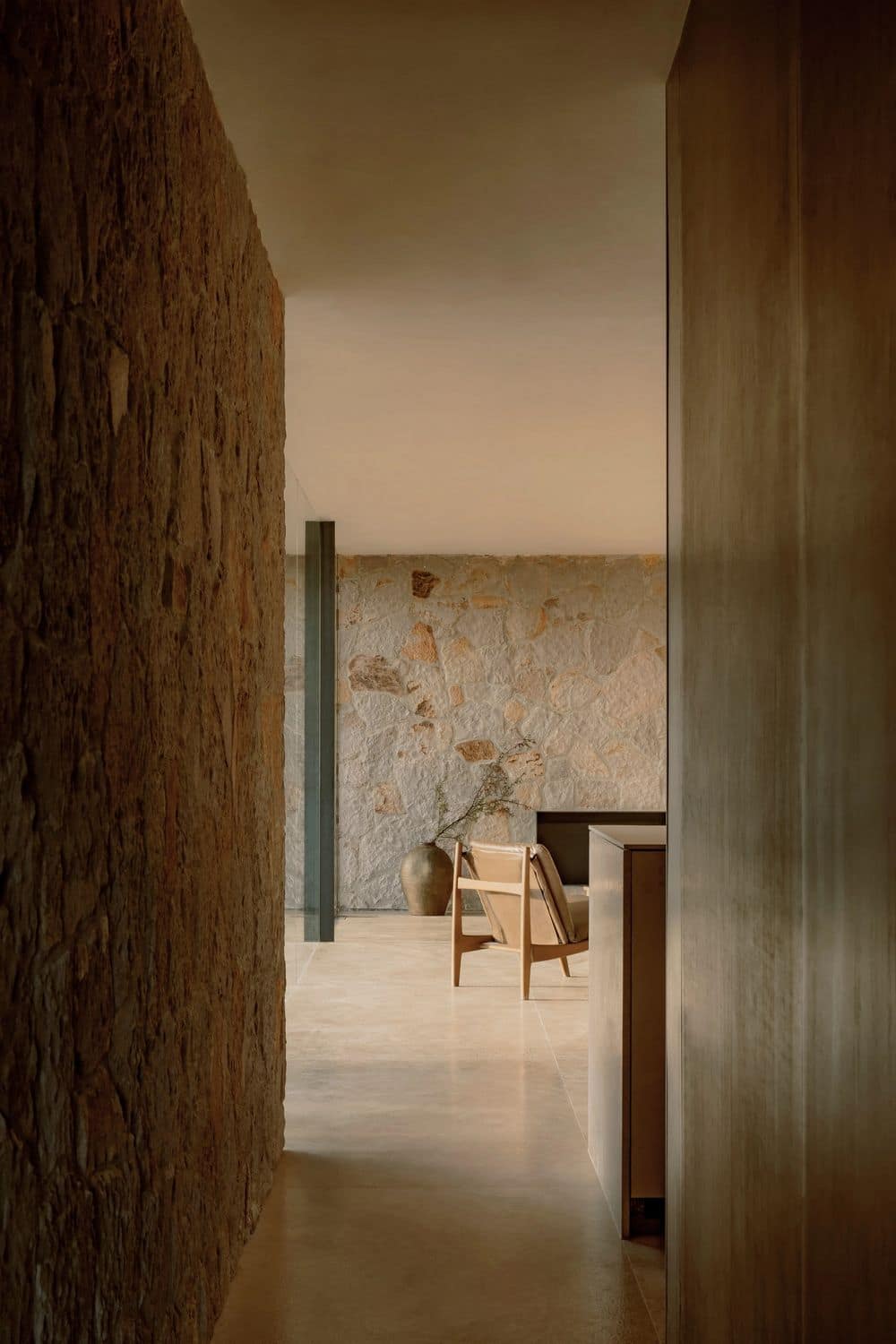
The height of the adjoining wall is high enough to hide the roofs from the neighbors but low enough for the mountain to lay on. AI tower, white and modern in nature, aims to be a space that evokes silence, a pause among the noisy and sometimes violent symphony of forms within any city.
